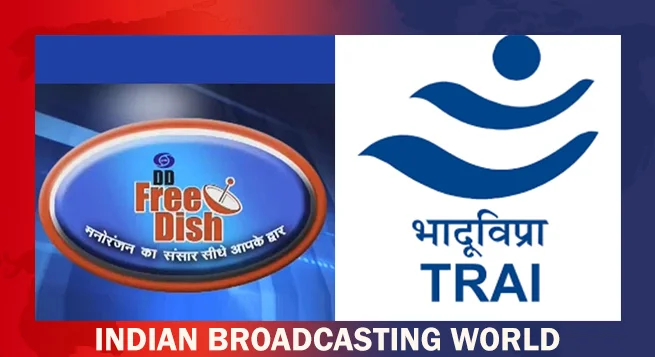Can TV channels designated as pay-per-view on one distribution platform turn into a free-to-air (FTA) on another platform? Well, that’s an issue that has been occupying quite a bit of mind space in the Indian M&E industry, keeping on the boil the traditional ‘fight’ between broadcasters and distributors for subscribers and revenue.
According to a report yesterday by Storyboard18.com, stakeholders expressed discontent with the operation of FTA TV channels on Prasar Bharti’s DD FreeDish, while the same fare is offered as pay channels to other platforms. (https://www.storyboard18.com/how-it-works/free-to-air-channels-on-dd-free-dish-spark-dispute-at-trai-meeting-29465.htm).
The rift came to the fore during an Open House of stakeholders on ‘Consultation Paper on Review of Regulatory Framework for Broadcasting and Cable Services’, organised yesterday by broadcast and telecoms regulator TRAI.
Stakeholders pointed out that certain channels designated as pay channels by broadcasters are being offered as FTA on DD FreeDish. This practice, according to some DPOs (distribution platform operators), creates an unfair advantage for DD FreeDish compared to other platforms, the storyboard18 report stated.
“DD FreeDish has acknowledged themselves as DTH operators. Moreover, if TDSAT (Telecom Disputes Settlement & Appellate Tribunal) has determined them as licensees and DTH operators, they cannot be exempted from the law,” the storyboard18 report quoted Girish Buttan, Head of Legal at SITI Networks, as saying. Many others agreed.
The News Broadcasters and Digital Association had said in their comments, “Carriage Fees and its capping under Tariff Order 2017 and Interconnection Regulations 2017 only should be applicable to the non-addressable distribution platform DD Free Dish. Also, the Quality of Service Regulations 2017 should also be made applicable to the non-addressable distribution platform DD FreeDish in its entirety in order that the objective of the Prasar Bharati (Broadcasting Corporation of India) Act, 1990 (‘Prasar Bharati Act’) be achieved.”
However, Prasar Bharati’s earlier submission to TRAI on this consultation paper, accessed by Indianbroadcastinbgworld.com, shows that public broadcaster dismissed the talks about level-playing field between FreeDish and other private sector DTH services and/or other platforms as an “incorrect” supposition.
Prasar Bharati stressed that there can be no comparison between DD FreeDish and the private DTH platforms as it’s a FTA platform, while the private DTH Platforms were pay platforms and had addressable systems with broadcast signals being encrypted.
Moreover, Prasar Bharati pointed out in its earlier submission that FreeDish was discharging public duties, while the activities of the private DTH platforms were actuated by profit.
“The level playing field argument pre-supposes that private platforms are at a disadvantage vis-à-vis DD FreeDish. The supposition is incorrect. The private platforms cater to those who can afford to pay for channels of their choice. DD FreeDish discharges public duties and caters primarily to those who cannot afford to subscribe to the private platforms.
“Capacity-wise, the private platforms provide a wider choice to their subscribers, whereas DD FreeDish has capacity constraints and no subscription revenue stream.
“Equality and level playing field can only be amongst equals and not amongst unequals,” Prasar Bharati maintained in its earlier submission, highlighting the classification between FreeDish and private platforms was based on an “intelligible” understanding and the demand for a level playing field was “misconceived, untenable and not in the interest of the general public”.
 Telecom subs base up marginally; Trai withholds updated b’band data
Telecom subs base up marginally; Trai withholds updated b’band data  WAVES driven by industry; govt just a catalyst: Vaishnaw
WAVES driven by industry; govt just a catalyst: Vaishnaw 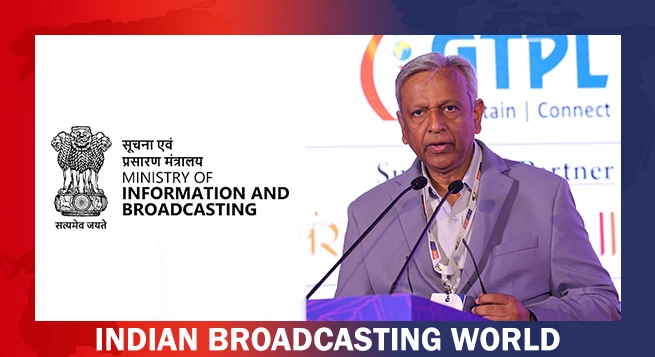 In officials’ reshuffle, Shankar moves out of MIB; Prabhat comes in
In officials’ reshuffle, Shankar moves out of MIB; Prabhat comes in 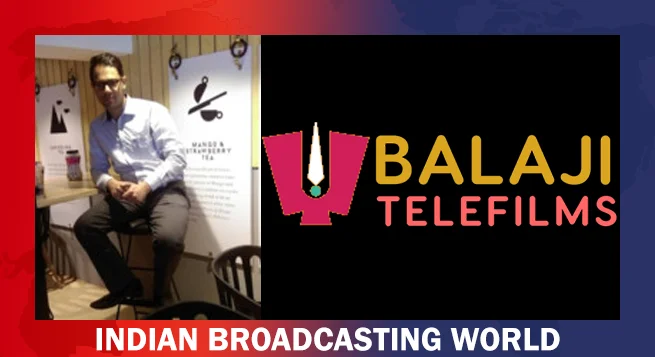 Balaji Tele elevates Viren Trivedi to finance controller
Balaji Tele elevates Viren Trivedi to finance controller 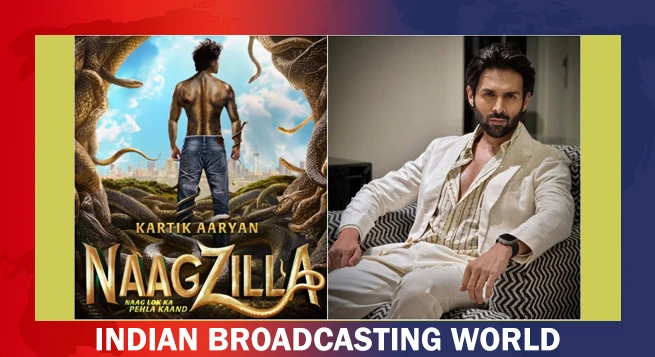 Kartik Aaryan turns shape-shifting serpent for ‘Naagzilla’
Kartik Aaryan turns shape-shifting serpent for ‘Naagzilla’ 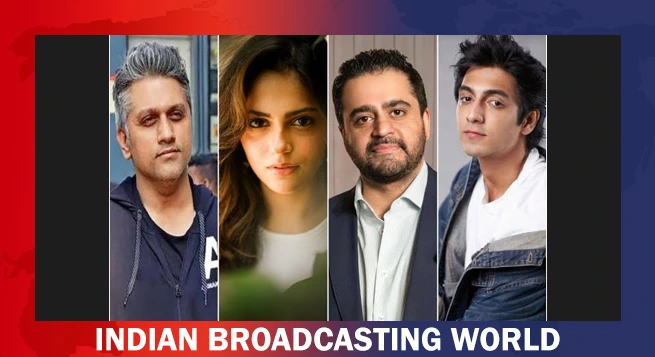 Mohit Suri’s ‘Saiyaara’ set for July 18 release
Mohit Suri’s ‘Saiyaara’ set for July 18 release 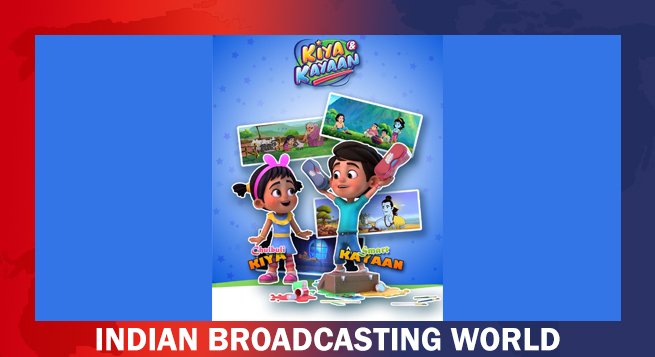 ApplaToon launches ‘Kiya & Kayaan’
ApplaToon launches ‘Kiya & Kayaan’ 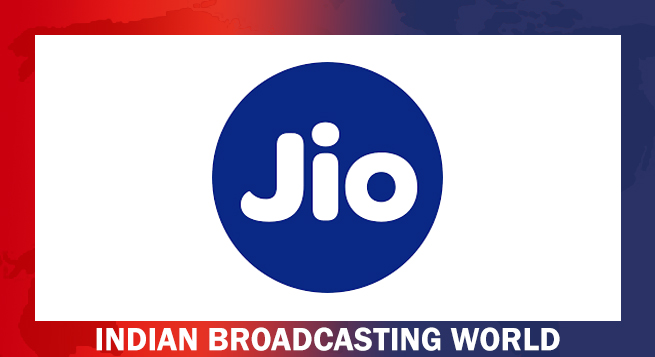 Jio captures a massive 85% share of India’s 5G fixed wireless market
Jio captures a massive 85% share of India’s 5G fixed wireless market 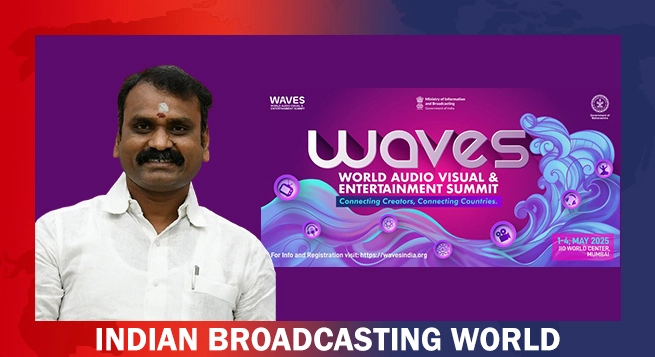 WAVES offers big opportunity to all media: Murugan
WAVES offers big opportunity to all media: Murugan 


